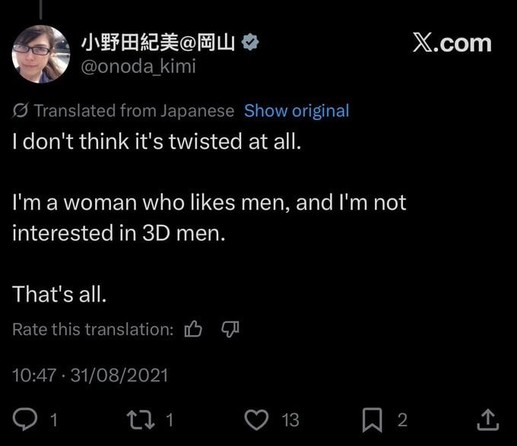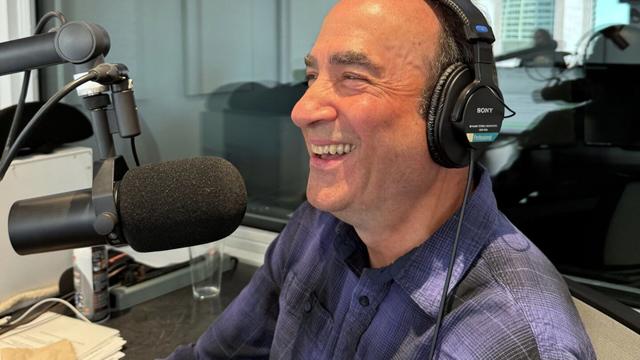2026-01-25 16:30:39
Foreign correspondents at WaPo send a letter to Jeff Bezos raising alarm over impending layoffs, which are expected to "land hard" on international coverage (@erikwemple)
https://x.com/erikwemple/status/2015432558851301380
2026-01-20 14:29:06
In the time I've been offline, I've been doing a lot and feeling a lot more mentally healthy. I've been exploring nomadnet a bit, looking at reticulum. I'm definitely going to go back to my break and being online much less regularly.
I actually totally forgot about the anniversary of the shooting, which is the first time that's happened since... uh... the shooting, I think.
I've definitely realized that, on some level, I've definitely used Mastodon (and formerly Twitter) as a coping mechanism, often in order to deal with the stressful things that I've found out about on Mastodon or Twitter.
But, again, none of those things really change our core job: build community. And that's part of what I've been neglecting, and what I can focus on more when I'm not spending as much time talking to people all over the world indirectly. Like, I can just chat directly with folks and talk about this shit.
Yeah, I do think there's value in this community. I don't think it's really screaming into the void (at least, not most of the time). But I know that I need the balance to be way farther on the side of direct engagement with comrades doing and building.
So that's what I'm gonna go back to. I feel as though it's a good sign that with all the writing about getting shot that I've been doing, and all the thinking about that, that the actual anniversary of the shooting I'm actually just thinking about bread.
And that seems like a good note to leave on. I'm gonna go back to some hacker shit.
2025-12-22 13:01:18
Investigation: in 22 US states, Uber approves drivers with many types of convictions, such as violent felonies, that are over seven years old to keep costs low (Emily Steel/New York Times)
https://www.nytimes.com/2025/12/22/business/uber-background-chec…
2026-01-13 11:42:57
“The images and data broadcast by the international media do not represent even one percent of the reality, because the information simply does not reach them.”
https://iranhumanrights.org/2026/01/ex
2026-02-19 09:37:04
Here is a metaphor that might be helpful in understanding immature tech trends.
When you have a leak in your plumbing, that's a problem that can be fixed. You can find the leak, replace the pipe, and the problem is solved.
When you learn to ride a bike, falling over is a different class of problem. The first times you fall off constantly. Then as you start to get the hang of it, you fall off 1 in 10 times, then 1 in a 100, and so on.
You minimize the problem, but it n…
2025-12-10 14:39:26
2026-02-10 17:09:27
DOJ seeks to undo Bannon’s conviction for defying Jan. 6 subpoena
-- its latest shift in a legal position to benefit a close ally of President Donald Trump.
In a Monday legal filing, the department asked the Supreme Court to send Bannon’s case back to the district court,
where the U.S. attorney filed a separate motion seeking to dismiss the charges against Bannon.
2025-12-14 15:46:49
Looking for other people here who're interested in analog "alt process" photography (especially Kallitype & salt prints in general) and who are also making their own prints. There used to be a few more such people in my TL, but they all seem to have vanished or stopped posting in the past year, and generally it feels there's precious little interest in this topic on Mastodon... (I too have a feeling, either my own photography went drastically downhill over the past 3-4 …
2025-12-22 10:31:40
Estimating Spatially Resolved Radiation Fields Using Neural Networks
Felix Lehner, Pasquale Lombardo, Susana Castillo, Oliver Hupe, Marcus Magnor
https://arxiv.org/abs/2512.17654 https://arxiv.org/pdf/2512.17654 https://arxiv.org/html/2512.17654
arXiv:2512.17654v1 Announce Type: new
Abstract: We present an in-depth analysis on how to build and train neural networks to estimate the spatial distribution of scattered radiation fields for radiation protection dosimetry in medical radiation fields, such as those found in Interventional Radiology and Cardiology. Therefore, we present three different synthetically generated datasets with increasing complexity for training, using a Monte-Carlo Simulation application based on Geant4. On those datasets, we evaluate convolutional and fully connected architectures of neural networks to demonstrate which design decisions work well for reconstructing the fluence and spectra distributions over the spatial domain of such radiation fields. All used datasets as well as our training pipeline are published as open source in separate repositories.
toXiv_bot_toot
2025-12-15 21:50:42
Sources: Bay Area radio station KCBS-AM, which faced MAGA backlash over ICE coverage, scaled back political reporting after Brendan Carr's threats of a probe (Byron Tau/Associated Press)
https://apnews.com/article/trump-media-fcc-kcbs-5dbed5c466771d53e2c7…








